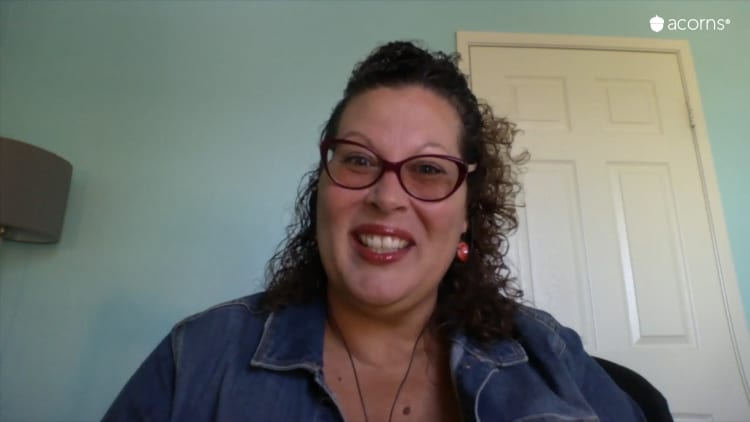New federal rules for individual retirement accounts greatly increase the tax burden for some heirs by telescoping the allowable period for withdrawals. Yet this pain can be greatly reduced by converting regular IRAs to Roth IRAs before bequeathing them.
Previously, all heirs had their entire life expectancy to take withdrawals from inherited IRAs, so they were able to stretch out these accounts, and the tax on withdrawals, over decades. Hence, the nickname for inherited accounts: stretch IRAs.
This changed in December, when Congress passed the Secure Act of 2019. The act preserves the lifelong stretch period for surviving spouses, minor children, the chronically ill and other individuals who aren't more than 10 years younger than their benefactors; the latter category would include most siblings.
More from Smart Tax Planning:
This tax credit can help offset childcare costs
5 ways the super-rich beat the taxman
Why getting zero back from the IRS may be best
But for other heirs, including adult children, the new rules limit the stretch period to a single decade. Starting with the IRA bequests from benefactors who die this year, heirs are now required to withdraw all money from these accounts within 10 years and pay ordinary income tax on each withdrawal in the year that they take it.
The new law means that, along with their accumulated wealth, those who bequeath substantial IRAs to their adult children now may be leaving them a huge tax burden. This greatly increases the need for estate-planning strategies to lighten this load.
Even before the new legislation, leaving heirs an IRA meant passing along some of your own lifetime income tax liability, as contributions to these accounts are tax-deferred. Yet the stretch rules, which allowed heirs virtually the rest of their lives to pay these taxes while continuing to get investment gains, minimized this tax burden by spreading it out for so long.

Now, this inherited wealth can come with significantly more baggage, and affected heirs will typically feel its weight almost immediately. Most will likely withdraw one-tenth of the IRA's assets every year for 10 years to spread out the tax impact.
For example, let's say an individual has a household income of $100,000, and inherits an IRA with $500,000 in assets (and that the account retains this value for 10 years). If this heir withdraws 10% per year, these withdrawals would increase his or her gross income by 50% each year — likely pushing them into a much higher bracket. Before the new rules, heirs could stretch withdrawals until they stop working and enter a lower tax bracket.
A good solution for many is to convert their regular IRA into a Roth IRA. Unlike regular IRAs, which are funded with pretax income, contributions to Roth IRAs are made solely with post-tax money. Though unlike regular IRAs, Roth IRAs carry no income tax on withdrawals, the Secure Act means they, too, will now have to be depleted within 10 years of inheritance.
A Roth conversion might be a good option, not only to minimize heirs' tax burden but also to sustain the growth of your retirement nest egg.David Robinsonfounder/CEO of RTS Private Wealth Management
Roth conversions have long been the choice of considerate benefactors mindful that, in leaving heirs an IRA, they were passing along the annoyance of paying tax on the income they invested. Now that the rules have shrunk the stretch option, this inherited liability is far more than a mere annoyance. It's a "tax-ageddon."
The institution that holds your IRA can set up a Roth conversion. As these conversions are a form of withdrawal, they can incur significant tax liability in the year that assets are converted. However, unbeknownst to many account holders, you can spread out this tax impact by moving IRA assets into a Roth gradually over multiple years.
Other strategies to ease the tax bite of Roth conversions include:
- Converting after you retire into a lower income-tax bracket.
- Taking advantage of a year when you have low taxable income by converting all or most the assets in that year, when your effective tax rate is lower than usual. If you own a small business, a year of low profits is probably a good year to convert.
- Converting in a year when extremely high-deductible health-care expenses reduce your taxable income significantly. If you've had the misfortune of serious illness or injury and high uncovered medical expenses, you might as well use the resulting deductions to offset the tax impact of a Roth conversion.
- For the charitably inclined, creating a donor-advised fund. Rules for these funds don't require charitable contributions right away, but you can get a substantial deduction from just putting money into one; this deduction can offset tax liability from a Roth conversion the same year. You can decide later which charities you want to the fund to benefit.
As you approach retirement, converting to a Roth has other advantages. Holders of regular IRAs must start taking annual required minimum withdrawals at age 72 (before the new legislation in December, this age was 70½).
But if you plan to keep working or are retiring with enough income from other resources, you may not want to take withdrawals. Instead, you may want to let these assets in your account grow intact rather than gradually liquidating them for withdrawal. Converting to a Roth enables this option.
Depending on your situation, a Roth conversion might be a good option, not only to minimize heirs' tax burden but also to sustain the growth of your retirement nest egg, thus increasing your ultimate legacy.





